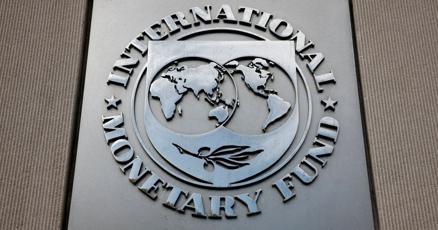
IMF Central Africa financing is blocked by US senators due to an oil fund issue
To protect billions of dollars that oil firms are required to set aside for environmental restoration, U.S. lawmakers have presented legislation that might prevent the International Monetary Fund from providing funding to some Central African nations.
The law details a conflict between international investors and Central African monetary authorities, who are attempting to strengthen capital controls on extractive industries in order to replenish depleting reserves.
The bill, which was introduced by U.S. Republican Representatives Bill Huizenga and Dan Meuser, concerns new rules enforced by the regional central bank, the Bank of Central African States (BEAC), which mandate that international oil companies (IOCs) deposit the funds for environmental restoration into accounts under BEAC’s control.
The IOCs operating in the region have set aside the cash, which are now stored in foreign banks and are expected to be between 3 and 6 trillion CFA francs (about $5 billion to $10 billion), for future environmental cleanup after production is finished.
To strengthen their economies and foreign exchange reserves, the member states of the Central African Economic and Monetary Community (CEMAC) want the money transferred to regional organizations.
Regional nations saw the IMF-supported action, which was authorized in an emergency summit of CEMAC chiefs of state in Yaounde in December 2024, as a crucial step in tackling economic fragility.
In accordance with the resolutions of the summit, the implementation is anticipated to begin on May 1st, with non-compliance punishable by up to 150% of the restoration funds, as stated in BEAC’s March 2025 monetary policy report.
Additionally, BEAC has proposed increasing the current 35% repatriation rate for other monies, including those used for operating expenditures by extractive industries, in the region.
The privately held French oil company Perenco, which has major activities throughout the region, stated that it was negotiating with regional stakeholders in order to come to an agreement prior to the deadline of April 30.
“Perenco is already complying with the 35% repatriation of funds’ rule, and all regulations currently in place,” a spokeswoman stated.
Requests for feedback from other oil corporations in the area were not answered.
The IMF has been encouraging in negotiations, and an IMF official told Reuters, “We are aware of the proposed U.S. legislation and will monitor any developments.”
“Staff stands ready to assess the nature of restoration funds for oil sites once the authorities and extractive companies share their final agreement,” a spokesman said.
According to a source, the finance ministry in Equatorial Guinea met with major operators Marathon Oil (MRO.MX), Chevron (CVX.N), Kosmos Energy (KOS.N), and Vaalco Energy (EGY.N) to discuss the matter.
Identifying reserves
A joint BEAC central bank, monetary policy, and currency are shared by the six CEMAC members: Cameroon, Gabon, Chad, Equatorial Guinea, Central African Republic, and Republic of Congo.
They lack foreign exchange reserves to pay for debt and imports because they have had difficulty recovering from the COVID-19 pandemic and other global shocks.
At the December meeting, President Paul Biya of Cameroon issued a warning that failure to address the countries’ declining net external reserves immediately would have “disastrous consequences” for them.
Billions of dollars in U.S. oil and gas investments throughout Central Africa could be jeopardized by the BEAC mandate, according to critics, including the bill’s sponsors.
“By refusing to clarify that these restoration funds will not count towards gross foreign exchange reserves, the IMF has misled the CEMAC member states and directly put tens of billions of dollars of IOCs investment in the region at risk,” stated the bill.
According to the bill, the money should not be “controlled by monetary authorities” or “readily available” to count towards foreign exchange reserves because it is contractually restricted and intended for future environmental restoration.
Under the proposed law, until the IMF publicly affirms that such monies cannot be categorized as gross foreign exchange reserves, the U.S. Treasury would not be permitted to support any IMF initiatives involving CEMAC nations.
The action may prevent additional IMF financial support approvals for some of the region’s most dependent nations, including the Republic of Congo and Cameroon.
Inquiries about the effects of the measure were not immediately answered by the IMF.
The IMF raised grave worries about the economy of the CEMAC region in a report released in March, stating that if corrective action is not taken, certain countries may have debt levels that are close to 100% of GDP and declining reserves by 2029.
According to the report, this might exacerbate liquidity problems and jeopardize the region’s ability to repay debts and maintain its financial stability.
All Categories
Tags
+13162306000
zoneyetu@yahoo.com



